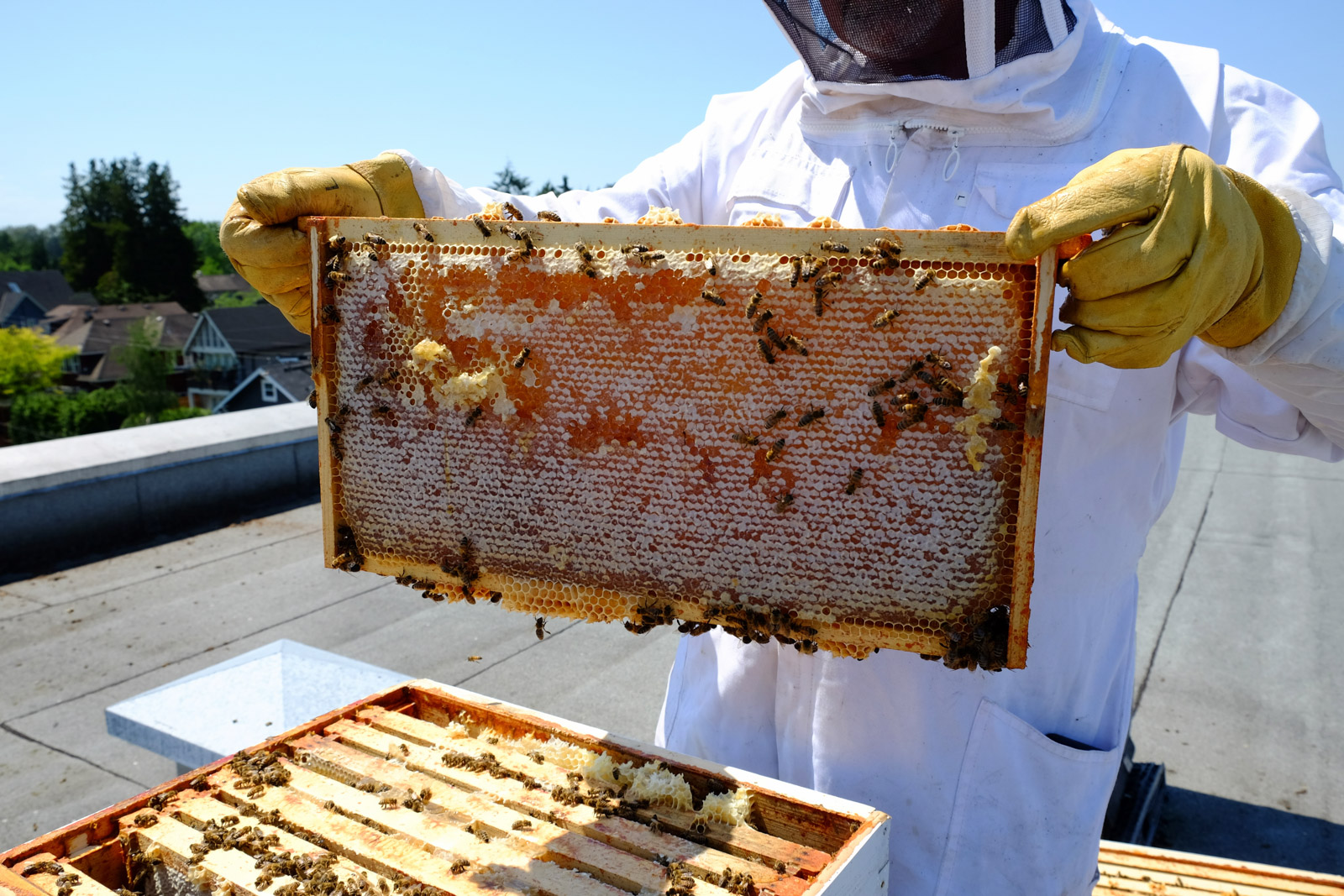It’s unusual to meet a developer as focused on fostering community as it is on the bottom line, but at Kevington Building—a family-owned firm headquartered on Vancouver’s west side—social sustainability is at the core of every project.
“I come from a Sephardic Jewish background,” says director of development Joe Khalifa, who runs Kevington with his brother, Matty, and his best friend, Nib Seto. “I have always been taught that if you host somebody, it is an honour and a privilege to have someone in your house. I don’t consider it any different if someone is living in one of our buildings.”
That sentiment flows through all of Kevington’s commercial and residential rental developments, deeply influenced by Khalifa’s immigrant parents. Albert and Tamar Khalifa moved to Canada from Israel in 1965, where Albert’s legacy includes having built some of Jerusalem’s first road infrastructure and apartments in the new state. While travelling to assess Canada as a possible new home, the engineer, educated at a Beirut university, stopped over in London, England, and found himself in a park called Kevington. While roaming that park, Albert resolved to create a new life in Canada—the name of his new business marking that moment. Once here with his family, he worked in social housing before moving on to countless more projects, including one of B.C.’s first residential strata high-rises.
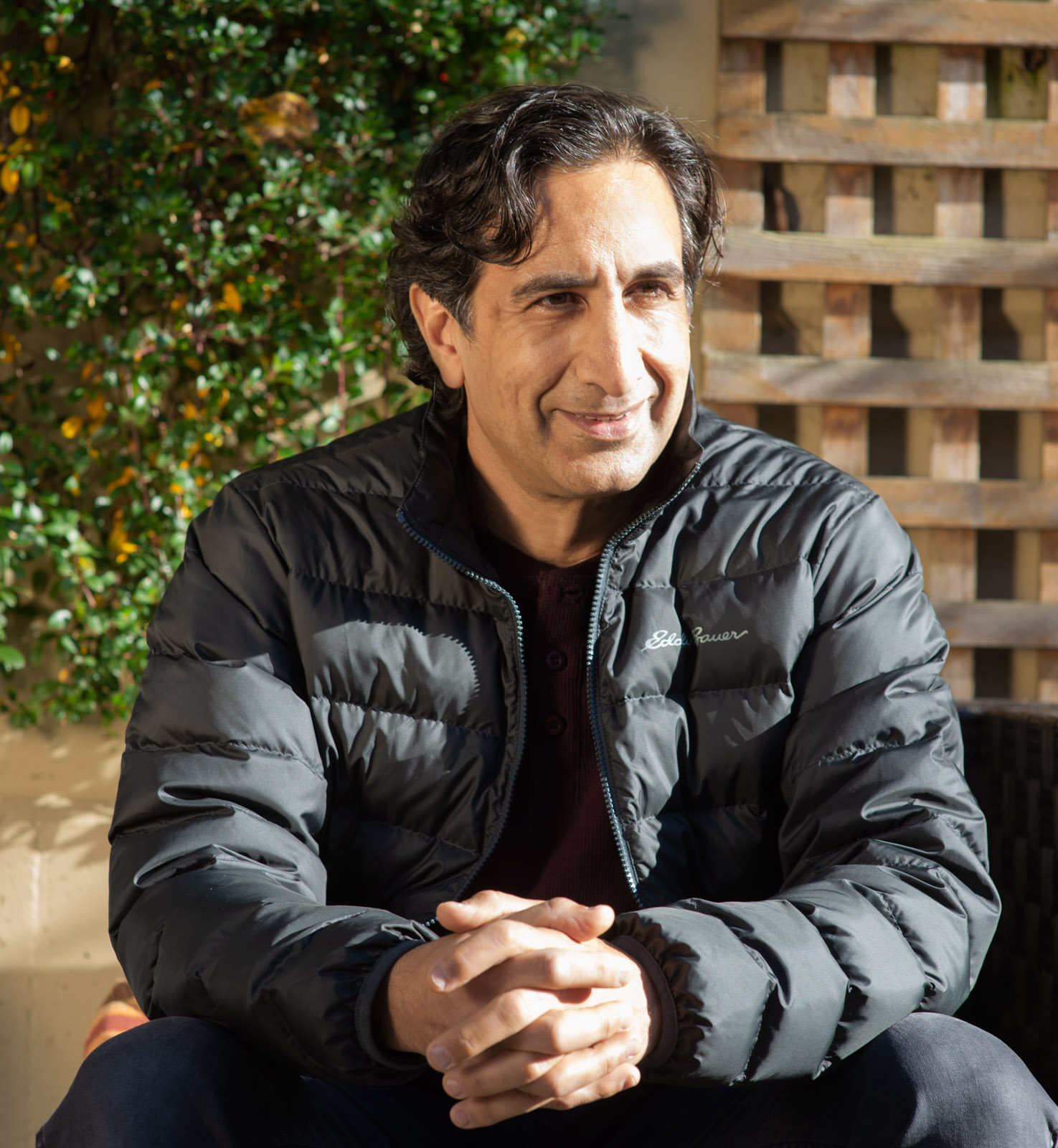
Kevington Building’s director of development, Joe Khalifa. Photo by Jennifer Latour.
Joe entered the family business much sooner than he would have liked. At age 20, he was travelling with friends in Europe and about to board a boat to Copenhagen. He called home to check in, and his father hit him with a life-changing decision: fly back and learn the family business or continue his travels. Faced with the prospect of his father selling off his properties to retire, Joe hopped a plane home, where he started as a labourer and worked his way up, learning the industry from his dad. Despite his commerce degree from UBC, Joe says his most challenging education came from the “Albert Khalifa School of Engineering.”
A new iteration of Kevington materialized. Early projects included Fraser Heights Village in Surrey, completed in 1990 and the beginning of a trajectory of constructing commercial buildings with community-cultivated soul. Numbering just four at the time—Matty, Nib, Joe, and foreman Morris Murasko—the team went all out to pull together local businesses, schools, churches, and residents through events to animate the spaces they built.
“It gave us an interesting purpose in an industry that is plagued a little—no, a lot—with a money-first mindset,” Joe says. “To be honest, we may have initially gone overboard focusing on the human side of things and forgot the business side. But we’ve managed to find this happy medium over the years,” he observes, pausing. “It’s not hard to do the business side well, but it is, I think, hard to be inspired while doing it.”
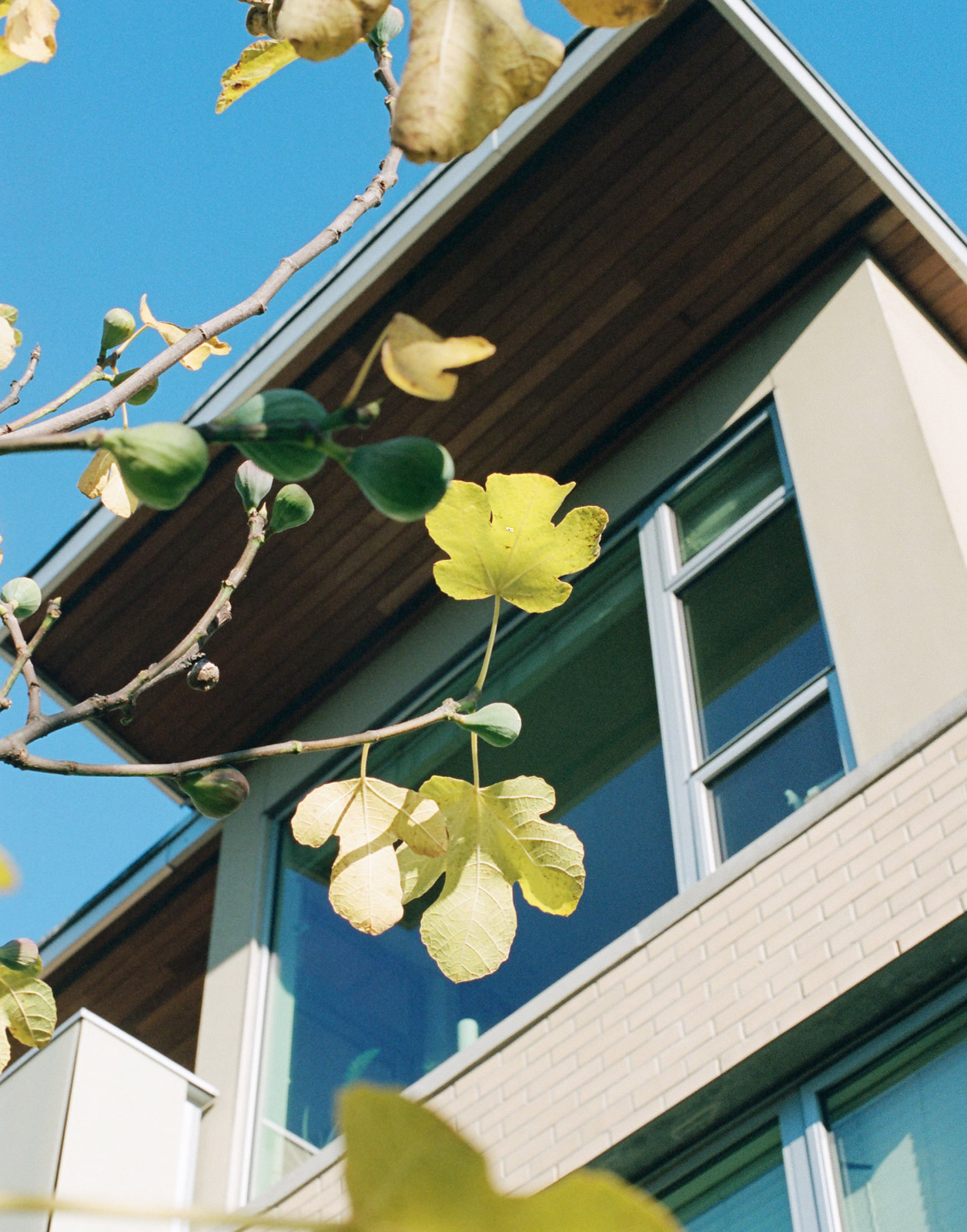
Photo by Jennifer Latour.
A path was set for the future. Kevington did not take on the megadevelopers—they could have their massive condominiums and shopping centres—and instead focused on select small and medium-sized opportunities across the Lower Mainland. A major breakthrough came in 2007 when the first phase of District Main opened with 50 units and 16,000 square feet of commercial space at Main and 30th. It was more than just Kevington’s first rental project; it was an example of changing the narrative in an adversarial renter-tenant landscape.
“Back in the ’90s in Vancouver, landlords treated people in a way that wasn’t necessarily respectful—certainly wasn’t inspiring—and people tended to hate them,” Joe says. “Even the word ‘landlord’… it’s horrible.” The team saw an opportunity for practical change through mutual cooperation and respect between tenants and owners. “For me, there is no sense of entitlement in this business, or even a sense that we are ever ‘giving back’ to our residents,” he adds. “I am a steward.”
Through beautiful lobby spaces and a dedicated staff of “building hosts” who care for the buildings, Kevington rentals are welcoming and functional, and a calendar of residential appreciation activities brings the community together. Before COVID-19, there were Saturday morning breakfast mixers, but in current times, that looks more like an outdoor pick-your-own-pumpkin patch at Halloween or a party-pack delivery of East Van Brewing beer and Nicli Antica Pizzeria pizza kits, accompanied by a virtual live painting tutorial with a local artist for a safe and social evening. A robust digital communication platform also keeps Kevington tenants up to date on events and COVID-19 news.
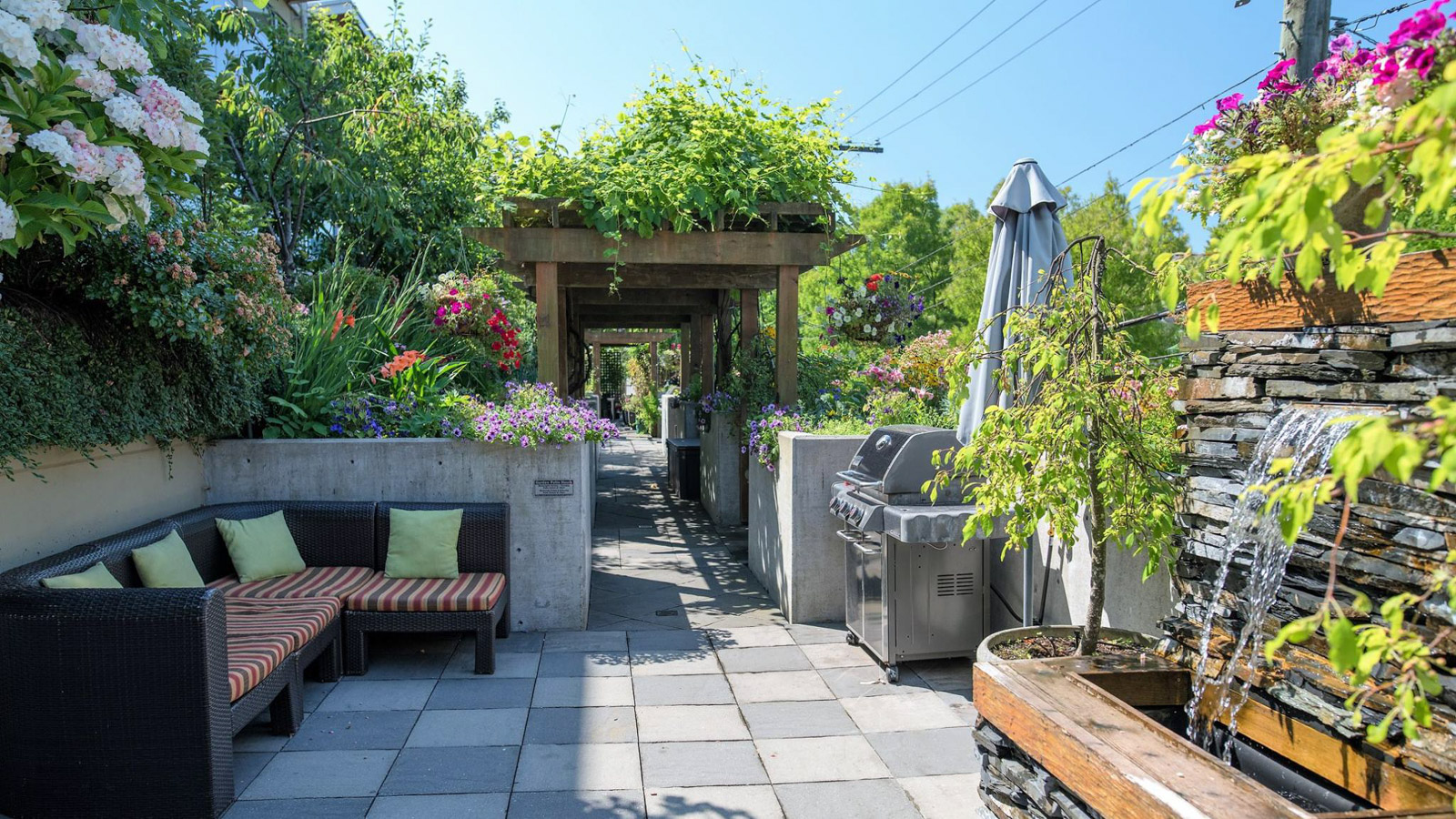
Photo courtesy of Kevington Building.
“At its core, creating community is not about interior design, it is about animating things so that people are inspired to interact and converse,” Joe notes. “Social sustainability builds trust, between staff, staff and residents, and residents and their neighbours. Once trust is established, everything is possible.”
In Kevington’s new buildings, urban orchards allow residents to pop downstairs to pick their own fruit, and rooftop beehives are maintained by staff, with jars of harvested honey placed in the lobby for all. The company also donates to and partners with not-for-profits such as the Boys & Girls Clubs of Canada and the Regional Animal Protection Society. All of their rentals are pet-friendly, bucking the long-standing trend in Vancouver, as do recent projects that include converting old three-storey walk-ups into affordable, retrofitted character buildings. Existing tenants remain in the spaces throughout; there are no renovictions.
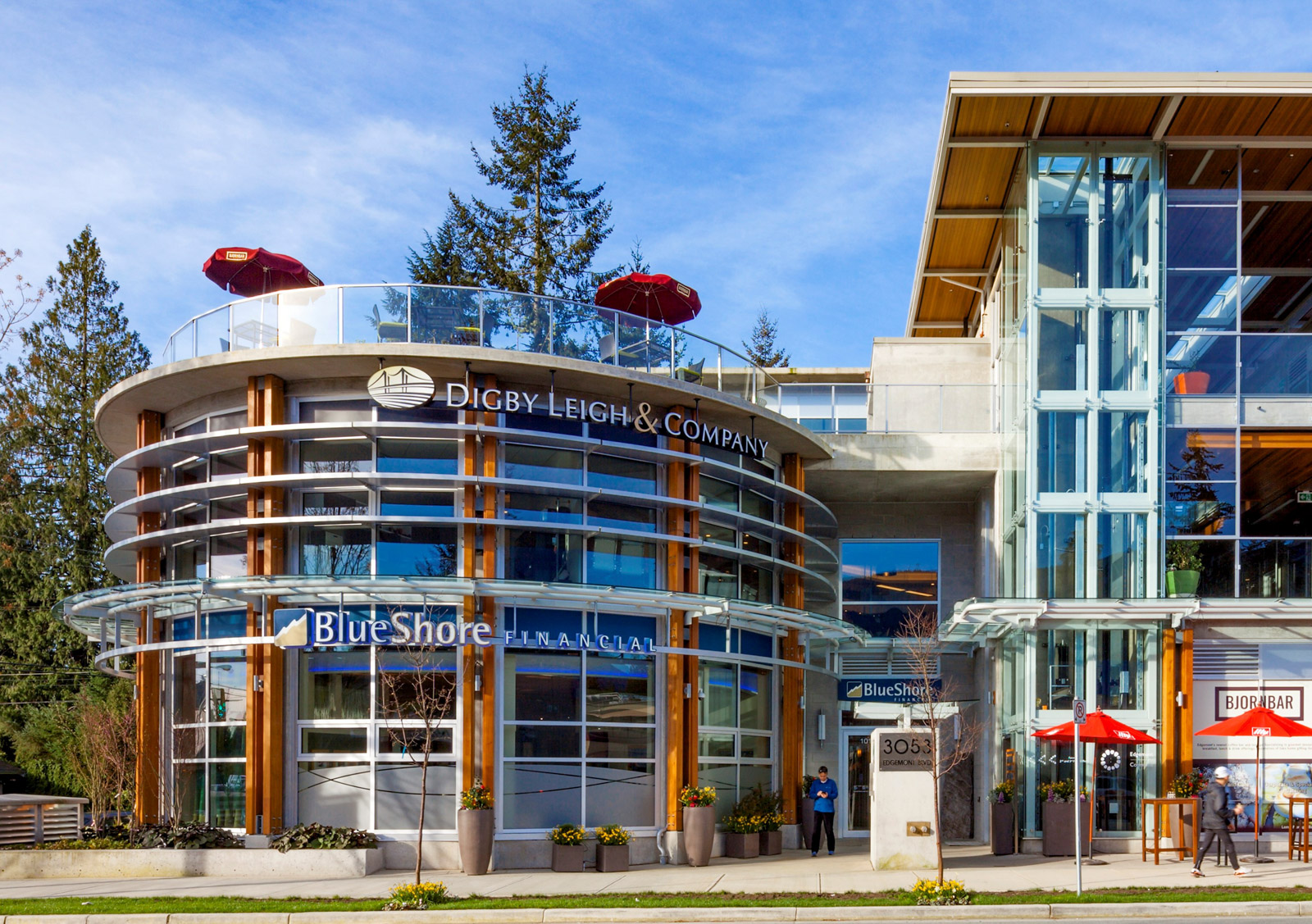
Photo courtesy of Kevington Building.
In May 2021, the doors will open at the U in Burquitlam, a 15-storey rental tower that includes 20,000 square feet of retail shops. “The financial challenge of building residential in the Lower Mainland is that, if you want to make things affordable, you can’t make them huge,” Joe explains. “So the parallel would be to the Mini, the car. It is beautifully designed, well-manufactured, and fun; you don’t use a lot of space or gas; and it’s not very expensive.” The U’s units will be similar, with a raft of amenities such as a rooftop bar, conference room, spaces to play basketball and pool, and a pet park and washing facilities. “The question we ask ourselves is: If we were to live here, what would we want?”
As a self-financed company with a nimble team of 20, Kevington has the flexibility to work off the beaten track, taking risks, making personal touches, and testing new business ideas that would not be possible for a bigger firm. “Business is about making money, of course, but if you’re relying entirely on investors, that is all that they look for. In our line of work, it doesn’t have to be just a business case, it has to be a human case too,” Joe maintains. “I come from a background that taught me that people provide richness in life. And a building without people—people that are happy—is just a bunch of bricks.”
This article is from our Winter 2020 issue. Read more Community stories.

